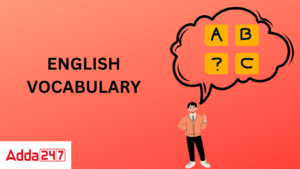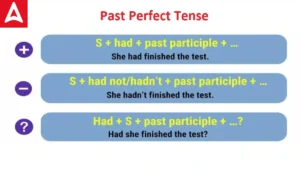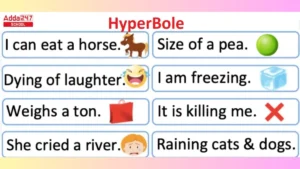The noun is the most fundamental part of an English sentence. To understand the meaning of a sentence you must identify the ‘Noun’ at first. It refers to a specific thing or collection of objects, such as a person, other living creatures, names, locations, acts, qualities, states of being, or concepts. Check out this post for all of the key details about nouns.
Noun Definition
There are different definitions for the Noun. A noun is a term that refers to a thing (for example, a book), a person (for example, Shiva), an animal (for example, a bat), a place (for example, Delhi), a quality (for example, softness), an idea (for example, justice), or an action (e.g. yodeling). They can be used as the subject, direct object, indirect object, subject complement, object complement, appositive, or adjective in a sentence.
In the past, Nouns were defined using the grammatical categories to which they belong to any gender, inflected for case and number. Because nouns in different languages do not have the same categories, such definitions are usually language-specific.
Noun Examples
The examples of Nouns as per the above definition are provided hereunder.
- Places – Bangalore, India, Mexico, North Pole, South Africa, The Nile River, Classroom, Bedroom, Basketball Court, Cricket Ground, Swimming Pool
- People – Rahul, Sheela, Man, Person, Tommy, Women, Girl, The Prime Minister
- Ideas – Evolution, Invention, Extinction, Argument, Destruction
- Objects/Things – Bat, Cycle, Curtains, Paper, Bag, Blackboard, Cupboard
- Animals/Birds/Aquatic Animals/Reptiles – Lion, Zebra, Snake, Ostrich, Flamingo, Bear, Cat, Fish, Shark
Characteristics of Noun
Nouns, also known as name words, are most commonly the first portion of speech covered in English grammar studies. let’s get some overview of the different characteristics of Nouns.
- What is Noun? Nouns are words that refer to people, places, things, events, substances, qualities, numbers, and so on.
- Nouns refer to tactile, visual, fragrant, tasty, auditory, and graspable objects. These are frequently characterized in terms of their semantic properties, particularly in casual situations.
- This part of speech can be singular or plural.
- Types – There are a total of 9 types of nouns.
- Common and Proper Noun – There are main two types of nouns: common and proper. A common noun is a reference to a person, place, or thing that does not have a specific name. A proper noun is the name of a specific person, place, or thing, and it usually starts with a capital letter.
- Gerunds – these are nouns that are equivalent to a verb’s present participle (-ing form), as in “I enjoy playing more than studying.”
- Attributive noun – An attributive noun changes the noun that comes immediately after it, such as business in a meeting. These nouns appear like adjectives, but they are not.
- collective noun – It is a noun that refers to a group of people or objects, such as a flock.
- Count noun – It is a noun that can be used after an or a number (or another term that implies “more than one”). Count nouns exist in both singular and plural forms and will take both verbs.
- Mass Noun – A mass noun is something that cannot be counted.
- Singular and Plural Noun – Some nouns are not countable or in bulk. Singular nouns are those that always refer to the same object. A plural noun relates to more than one person or thing, or something made up of two parts.
Noun Types
Nouns can be divided into various types, some of which are: proper, Common, Collective, Abstract, etc. Based on the number, the nouns are divided into two groups: Singular and Plural. Check the most important types of Nouns along with definitions and examples in English Grammar in the next part of the article.
- Proper Nouns
- Common Nouns
- Collective Nouns
- Abstract Nouns
- Concrete Nouns
- Possessive Nouns
- Compound Nouns
- Singular Nouns
- Plural Nouns
- Countable Nouns
- Uncountable Nouns
- Multifunctional Nouns
Proper Nouns
Proper nouns are nouns that are used to name a person, place or thing specifically. You can easily identify a proper noun in a sentence as they always begin with a capital letter. A proper type refers to a single entity and is used to refer to that entity, such as Africa, Jupiter, Sarah, or Microsoft.
When Proper Nouns appear in plural form (either optionally or exclusively), they refer to distinct groups of entities. Proper types of nominals can also be found in secondary contexts, such as as modifiers or in the role of common nouns.
Proper Noun Examples
Check the examples of these nouns below.
- My name is Klassen. (Name of a particular person)
- Raj came back from Berlin. (Name of a specific place)
- Denim is a famous brand of men’s clothing. (Name of a particular clothing brand)
- This is my dog, Tom. (Name of a specific pet animal owned by someone)
Common Nouns
Common nouns are nouns that represent a general item, group, or location. This implies that, unlike proper nouns, they are not used to specify particular individuals, locations, or items. Regular nouns are not capitalized unless they start a sentence. A common type of noun refers to a class of entities (continent, planet, person, firm) and may be used to refer to examples of that class (a continent, another planet, these persons, our corporation).
A common noun is described as an entity that is the name of a group of related items, such as table or book, rather than a particular person, place, or thing, according to the Cambridge Dictionary. Common types are words that are used to refer to everyday people, places, animals, birds, insects, reptiles, ideas, and items.
Common Noun Examples
- Only ten workers showed up to work today. (Common group)
- I am going to market. (Common place)
- The bike is out of fuel. (Common items)
- I bought a car yesterday. (Common object)
Difference Between Common Noun and Proper Noun
| Common Noun | Proper Noun |
| Common nouns are more generic. | Proper nouns are names for distinct individuals |
| It refers to a group of people, places, things, or concepts rather than to a specific person or thing. | It refers to places, objects, or concepts. |
| The first letter of Common Noun is not capitilized. | They are always capitalized to set them apart from common nouns. |
Collective Nouns
Collective nouns are naming words that are used to denote a group of animals, objects or people. It can be confusing at times whether to use a singular or plural verb with a collective noun. It’s not always clear whether the verb for a collective noun should be singular or plural.
Collective Noun Examples
Collective nouns for groups of people
- A band of musicians
- A board of directors
- A crew of sailors
- A company of actors
Collective nouns for groups of animals
- A pride of lions
- A flock of sheep
- A swarm of bees
- A herd of elephants
Collective nouns for several things/objects
- A pair of shoes
- A chain of mountains
- A fleet of ships
- A bunch of grapes
Abstract Nouns
An abstract noun refers to any entity that cannot be detected by the five senses of the human body. In other words, those naming intangible words (cannot be touched) but can be felt, falls under the ambit of the abstract nouns.
Abstract Noun Examples
- You should not misuse the freedom you are given.
- Love is a strong emotion.
- It takes a lot of courage to raise your voice and stand up against injustice.
- Honesty is the best policy.
Concrete Nouns
A concrete noun is a term for physical objects that can be seen, touched, heard, smelled, or tasted by humans. It is the opposite of the abstract noun types.
Concrete Noun Examples
- The food is on the table.
- Hardy goes to school by train.
- Sharon opened the doors.
- I had a cup of tea.
Possessive Nouns
A possessive noun owns or controls something. In most circumstances, a possessive noun is produced by adding an apostrophe +s to the noun, or by adding merely an apostrophe if the word is multiple and already ends in “s”.
Possessive Noun Examples
- The boys’ clubs are very competitive.
- I borrowed Angel’s white shoes for the event.
- The students’ assignments were arranged according to their roll numbers.
- The new Malayalam movie’s rating is pretty high.
Compound Nouns
A compound noun is created by merging multiple parts of speech to form a single noun. There are three main types of compound nouns: Open or spaced compound nouns, hyphenated compound nouns, and closed or solid compound nouns.
Compound Noun Examples
- I heard that Sandra has a swimming pool inside her house.
- The security guard got into trouble as he misplaced the walkie-talkie.
- The teacher wrote down all the sentences on the blackboard.
Singular Nouns
Singular nouns are naming words that are used to name a single person, place, animal, bird or object. The singular type of noun will always be used to denote a single entity without any exception.
Singular Noun Examples
- That is my son. (Single person)
- There is a little girl in front of our house. (Single person)
- A red car has been following us for a long time. (Single object)
- I found a wounded pigeon in the bush. (Single bird)
Plural Nouns
Plural nouns represent multiple individuals, locations, creatures, or objects. To create the plural form of a noun, you can add ‘s’, ‘es’, ‘ies’, or ‘ves’ to the original base word. Nouns ending in ‘s’ do not change. Certain nouns have identical singular and plural forms, while others have completely different spelling variations.
Plural Noun Examples
- We took photos of some lions on our way.
- I need some oranges.
- I bought mangoes from the market.
- Did you find the bags you were looking for?
Countable Nouns
A countable noun is a type that may be modified by a numeral and that can occur in both singular and plural forms, as well as with quantificational determiners such as every, each, several, and so on. Because it cannot be modified by a numeral, cannot be pluralized, and cannot co-occur with quantificational determiners, a mass noun has none of these properties.
Countable Noun Examples
- Ram brought ten packets of lays for the trip. (specific number – ten)
- I saw an auto around seven in the morning. (specific – an means one)
- Father asked me to buy a dozen eggs. (specific – dozen means twelve)
Uncountable Nouns
An uncountable noun, also known as a mass noun, un-count noun, or simply uncountable, is a type that has the syntactic attribute of being considered as an undifferentiated unit rather than a discrete entity. Count and non-count nouns are opposite of one another. The uncountable nouns include both concrete and abstract nouns.
Uncountable Noun Examples
- I have a cup of coffee. (Cannot count)
- I have a lot of homework to do. (Not specific)
- We are facing terrible weather today. (Cannot count)
Difference Between Countable and Uncountable Nouns
| Countable Noun | Uncountable Noun |
| Countable nouns refer to items that can be counted. |
Uncountable nouns are objects that cannot be counted.
|
| They are preceded by an indefinite article or a number, as well as pluralized. |
They should never be preceded by an indefinite article or a number, and they cannot be pluralized such as ‘advice’.
|
| The majority of nouns are countable. | Lesser number of nouns are uncountable. |
Multifunctional Nouns
Nouns can sometimes perform the function of other components of parts of speech like verbs. Check such instances in this section below.
Nouns Used as Adjectives
By making a small adjustment in the spelling or including a suffix to the base word, nouns can be transformed into adjectives on occasion. Check the examples given below to understand this concept.
- Seema sensed some danger. (Used as a noun)
What you are trying to do is dangerous. (Used as an adjective)
- Speaking against another caste is a legal offence. (Used as a noun)
What you did was offensive. (Used as an adjective)
- He is excited about magic. (Used as a noun)
The experience was completely magical. (Used as an adjective)
- He has no money. (Used as a noun)
There has been a change in the monetary policy of the country. (Used as an adjective)
Noun Used as Verbs
Some nouns can also function as verbs. Certain nouns can function as verbs by making a small alteration to the spelling of the base word.
Examples:
- Ram had come to collect some ice. (Used as a noun)
My father iced the fish so that it did not stink. (Used as a verb)
- Her divorce is final. (Used as a noun)
He is divorced. (Used as a verb)
- I have song practice today. (Used as a noun)
Did you practise the dance? (Used as an adjective)
- Do you like her new dress? (Used as a noun)
He is dressed and ready to go. (Used as a verb)
Noun Use Cases
Nouns can be used as different components of a sentence. Check different use cases of a noun below.
Nouns as Subjects
A subject noun is a type that serves as the sentence’s subject. The subject of a sentence is a type that performs the action. An object noun, on the other hand, is a type that is the subject of a phrase, meaning that it is the recipient of the action.
- Ram went to the playground.
- The leopard was rescued safely after ten long hours.
- The principal asked the students to submit their assignments.
Nouns as Objects
Nouns typically appear in the latter portion of a sentence when they are utilized as objects. One way to find it is to ask “what” questions. The nouns can be used both as a direct object and an indirect object.
- I bought a car.
- I cannot find today’s newspaper.
- Where is your bag?
Nouns Used as Direct Objects
A direct object is a noun that receives the action performed by the subject. The question “what” can be used to determine whether a noun is being used as a direct object.
- I loved my pant. (What did you love? – my pant)
- Do you want a ball? (What do you want? – a ball)
Nouns as Indirect Objects
An indirect object is a type that receives a direct object. To determine whether a noun is being used as an indirect object, you can ask the question “for whom.”
- Megha baked Julie a cake. (For whom did Megha bake a cake? – Julie)
- Dan bought his sister a Mini Cooper. (For whom did Dan buy a Mini Cooper? – his sister)
Nouns as complements
When a noun is used to modify or describe another noun, it is said to be acting as a complement. The nouns can act both as a subject complement and an object complement. Understand this concept below.
Nouns Used as Subject Complements
Occupations and roles have the ability to act as a subject complement. A noun or an adjective that defines or renames the subject is usually the subject complement.
- Dr. Rajendra Prasad was the first President of India.
- My father is an doctor.
Nouns Used as Object Complements
Objects complements are nouns that come after the noun they describe. Titles, job roles, and positions have the ability to act as an object complement. Object complements are objects that follow and change a direct object while also providing information about it. A nominal or adjective, or any word acting as a noun or adjective, can be used as an object complement.
- The teacher made Rohan, the class monitor.
- We named our cat, Oggy.
| Related Articles | |
| Possessive Nouns | Singular Nouns |
| Plural Nouns | Compound Nouns |









 Vocabulary Words with Meaning and Senten...
Vocabulary Words with Meaning and Senten...
 Past Perfect Tense: Definition, Formula,...
Past Perfect Tense: Definition, Formula,...
 Hyperbole- Explanation, Definition, Exam...
Hyperbole- Explanation, Definition, Exam...














